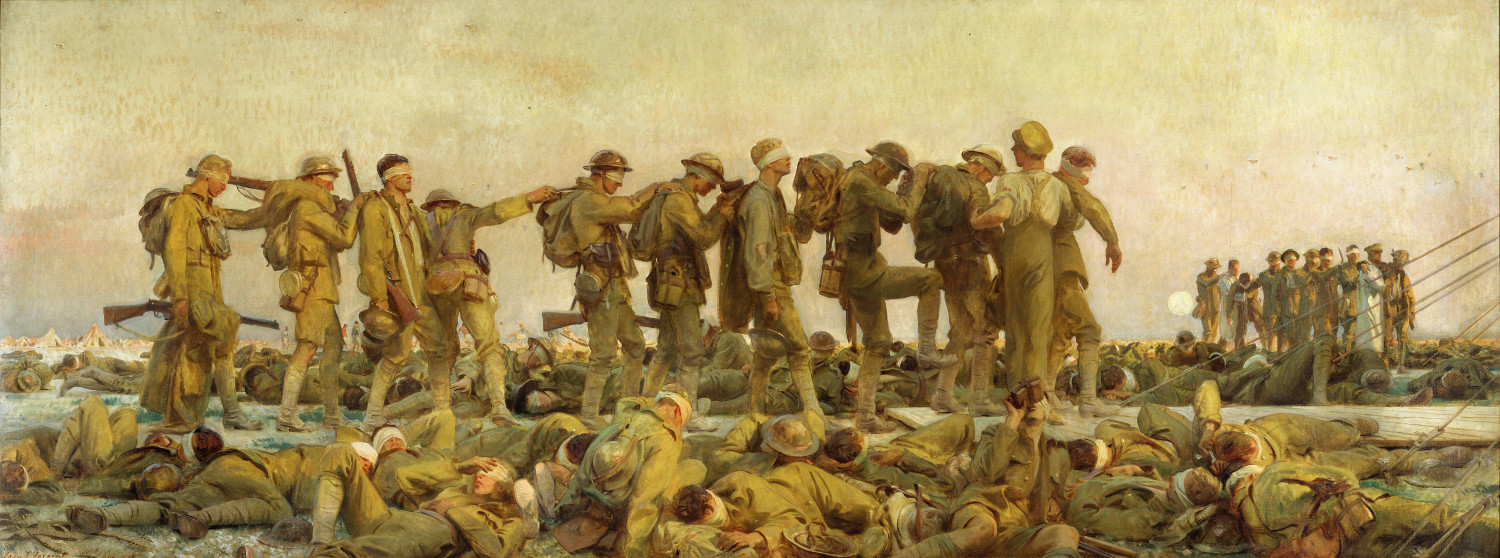
Bertrand Russell argues against defensive war in “The Ethics Of War” (1915):
The principle of non-resistance contains an immense measure of wisdom if only men would have the courage to carry it out. The evils suffered during a hostile invasion are suffered because resistance is offered […]. What one civilized nation can achieve against another by means of conquest is very much less than is commonly supposed.
When making a decision, an accurate analysis of the universal consequences of that decision have to be accounted for. In the case of war, this sort of analysis is extremely difficult and is rarely conducted seriously.
By concentrating attention upon the supposed advantages of the victory of our own side, we become more or less blind to the evils inseparable from war and equally certain whichever side may ultimately prove victorious. Yet so long as these are not fully realized, it is impossible to judge justly whether a war is or is not likely to be beneficial to the human race.
It’s much easier to predict the horrors of an occupation than the horrors of a war, a conclusion which is perhaps a corollary of the fact that the latter far exceed the former.
Finally, we have a sense of honor in sacrifice, but I assert that sacrifice on the battlefield is in no way more honorable than sacrifice in passive resistance.
Only pride and fear stand in the way of [non-resistance’s] adoption. But the pride of military glory might be overcome by a nobler pride, and the fear might be overcome by a clearer realization of the solidity and indestructibility of a modern civilized nation.
In John Steinbeck’s novel The Grapes Of Wrath (1939), there’s a nice example of passive resistance:
There was a level place on which a croquet court had been set up. Half a dozen children played seriously. […] Ruthie and Winfield broke into a trot. “Leave us play,” Ruthie cried. “Leave us get in.”
The children looked up. A pig-tailed little girl said, “Nex’ game you kin.”
“I wanta play now,” Ruthie cried.
“Well, you can’t. Not till nex’ game.”
Ruthie moved menacingly out on the court. “I’m a-gonna play.” The pig-tails gripped her mallet tightly. Ruthie sprang at her, slapped her, pushed her, and wrested the mallet from her hands. “I says I was gonna play,” she said triumphantly.
[…]
The children laid their mallets on the ground and trooped silently off the court. They stood at a distance and looked on with expressionless eyes. Ruthie watched them go. Then she hit a ball and ran after it. “Come on, Winfiel’. Get a stick,” she called. And then she looked in amazement. Winfield had joined the watching children, and he too looked at her with expressionless eyes. Defiantly she hit the ball again. She kicked up a great dust. She pretended to have a good time. And the children stood and watched. Ruthie lined up two balls and hit both of them, and she turned her back on the watching eyes, and then turned back. Suddenly she advanced on them, mallet in hand. “You come an’ play,” she demanded. They moved silently back at her approach. For a moment she stared at them, and then she flung down the mallet and ran crying for home. The children walked back on the court.
An aside: if you like dog quotes, The Grapes Of Wrath has some good ones.